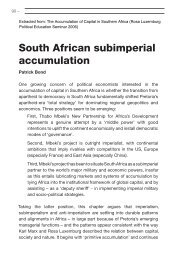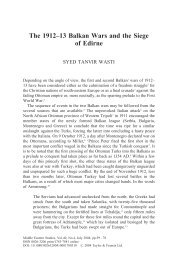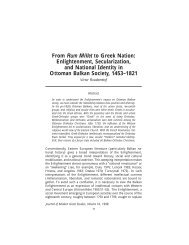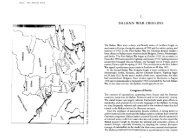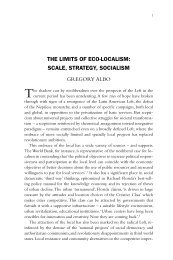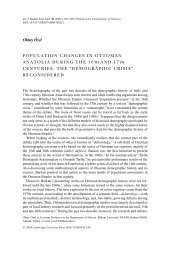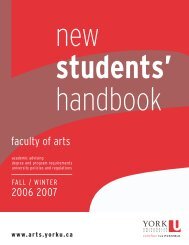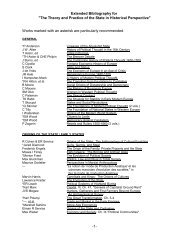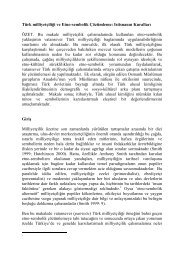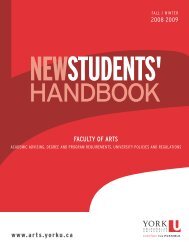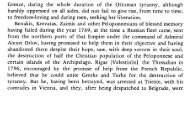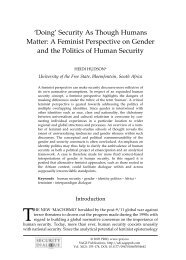FYCSG 05/06 REV2 - Faculty of Arts - York University
FYCSG 05/06 REV2 - Faculty of Arts - York University
FYCSG 05/06 REV2 - Faculty of Arts - York University
You also want an ePaper? Increase the reach of your titles
YUMPU automatically turns print PDFs into web optimized ePapers that Google loves.
Selected 1000-level courses <strong>of</strong>fered through the Division <strong>of</strong> Humanities and the Division<br />
<strong>of</strong> Social Science are affiliated with the appropriate <strong>Faculty</strong> <strong>of</strong> <strong>Arts</strong> Colleges and are a part<br />
<strong>of</strong> the <strong>Faculty</strong> <strong>of</strong> <strong>Arts</strong> General Education/Foundations requirement. These Foundations<br />
courses introduce students to interdisciplinary study and emphasize critical skills in<br />
thinking, reading, and writing at the <strong>University</strong> level, while providing a supportive<br />
learning environment. The connection to one <strong>of</strong> the <strong>Faculty</strong> <strong>of</strong> <strong>Arts</strong> Colleges enables<br />
students to participate more fully in college life. Students will be members <strong>of</strong> a particular<br />
college with access to academic advising, orientation programs, social, and co-curricular<br />
events. The College affiliation for students not living in residence will be program based.<br />
Communication Studies<br />
Communication Studies is an interdisciplinary program that provides students with a<br />
comprehensive understanding <strong>of</strong> the traditional forms <strong>of</strong> mass communication (print,<br />
radio, film, television). The emphasis <strong>of</strong> the program is academic rather than technical.<br />
As an Honours Double Major Interdisciplinary Program, students must combine Communication<br />
Studies with another major subject area, and this leads to an Honours BA<br />
degree. The Communication Studies program also <strong>of</strong>fers a limited enrolment Specialized<br />
Honours BA program. Because <strong>of</strong> limited space, admission is not guaranteed for all<br />
students who meet the minimum requirements. For more information regarding application<br />
information, please contact the Communication Studies Program Office.<br />
SUGGESTED COURSE SELECTION FOR FIRST YEAR.<br />
(ASSUMES A COURSE LOAD OF 30 CREDITS):<br />
• AS/SOSC1310 9.0 (will fulfill Foundations requirement);<br />
• Introductory course towards Major 1 (usually 6 credits);<br />
• 1000-level 6 credit NATS course;<br />
• 6 credit elective course;<br />
• 3 credit elective course (optional).<br />
Computer Science<br />
Computer Science is the study <strong>of</strong> processes involving the storage, transmission and<br />
transformation <strong>of</strong> information in the context <strong>of</strong> modern electronic technology. Both<br />
theoretical and applied areas <strong>of</strong> computer science are represented in the courses <strong>of</strong>fered<br />
by the department. The introductory courses (for majors and for non-majors) are<br />
concerned largely with programming as the primary tool used for understanding and<br />
controlling computation. The higher-level courses deal with theoretical concerns, the<br />
practical design <strong>of</strong> hardware and s<strong>of</strong>tware, and a variety <strong>of</strong> application areas.<br />
AK/AS/SC/CSE/MATH1019 3.0 Discrete Math for Computer Science. Introduction to<br />
abstaction. Use and development <strong>of</strong> precise formulations <strong>of</strong> mathematical ideas.<br />
Informal introduction to logic; introduction to naïve set theory; induction; relations<br />
and functions; big O-notation; recursive definitions, recurrence relations and their<br />
solutions; graphs and trees. Three lecture hours per week. Plus drop-in optional<br />
problem sessions as well as instructor <strong>of</strong>fice hours which are announced in each term.<br />
Prerequisites: AK/AS/SC/MATH1190 3.0, or both <strong>of</strong> 12U Advanced Functions and<br />
Introductory Calculus and 12U Geometry and Discrete Mathematics.<br />
Degree Credit Exclusion: AK/AS/SC/COSC/MATH1019 3.0, AS/AK/SC/MATH2320 3.0.<br />
AK/AS/SC/CSE1020 3.0 Introduction to Computer Science I. Conceptual foundations<br />
<strong>of</strong> object-oriented programming, including data types, control structures, class library<br />
usage, encapsulation, inheritance and other abstractions; the s<strong>of</strong>tware development<br />
process, specification and implementation, with emphasis on s<strong>of</strong>tware engineering<br />
principles. Three lecture hours and weekly laboratory sessions.<br />
Prerequisites: One <strong>of</strong> (1) - (4) below must be met:<br />
(1) (New high school curriculum): Two 12U Math courses, including advanced functions<br />
and introductory calculus, with minimum mathematics average <strong>of</strong> 75% on the two<br />
courses, and no mathematics grade below 65%.<br />
(2) (Old high school curriculum): OAC calculus and one other OAC in mathematics<br />
(normally finite mathematics or algebra and geometry) with an average grade <strong>of</strong><br />
75% in all OAC mathematics and no grade less than 65%.<br />
(3) Completion <strong>of</strong> 6.0 credits from <strong>York</strong> <strong>University</strong> MATH courses (not including<br />
AK/MATH1710 6.0 or courses with second digit 5) with a grade average <strong>of</strong> 5.0 (C+) or<br />
better over these credits;<br />
(4) Completion <strong>of</strong> AK/MATH1710 6.0, or 6 credits from <strong>York</strong> <strong>University</strong> mathematics<br />
courses whose second digit is 5, with an average grade not below 7.0 (B+).<br />
Degree credit exclusions: AK/AS/SC/COSC1020 3.0, AK/COSC2200B 3.0, AK/COSC2411 3.0,<br />
AS/AK/ITEC1020 3.0, AS/AK/ITEC1620 3.0.<br />
AK/AS/SC/CSE1030 3.0 Introduction to Computer Science II. This course builds on<br />
CSE1020 3.0 covering class implementation and system design in object-oriented<br />
programming, including composition, inheritance, polymorphism, and exception<br />
handling. Other topics include, recursion, searching and sorting, and introductory data<br />
structures.<br />
Prerequisite: AK/AS/SC/CSE1020 3.0 or AK/AS/SC/COSC1020 3.0 or AK/COSC2411 3.0<br />
or AS/AK/ITEC1020 3.0.<br />
Degree credit exclusions: AK/AS/SC/COSC1030 3.0, AK/COSC2412 3.0, AS/AK/ITEC1030 3.0,<br />
AS/AK/ITEC2620 3.0.<br />
AK/AS/SC/CSE1520 3.0 Computer Use: Fundamentals. An introduction to the use<br />
<strong>of</strong> computers focusing on concepts <strong>of</strong> computer technology and organization (hardware<br />
and s<strong>of</strong>tware) and the use <strong>of</strong> applications such as spreadsheets, database and information<br />
retrieval tools for problem solving. The course requires extensive laboratory<br />
work. This course is designed for students who are not Computer Science majors.<br />
Students who plan to major in Computer Science are advised to take<br />
AK/AS/SC/CSE1020 3.0.<br />
Degree credit exclusions: AK/AS/SC/COSC1520 3.0, AK/COSC1200 3.0, AK/COSC1210 3.0.<br />
Note: This course is not open to any student who has passed or is taking<br />
AK/AS/SC/CSE1020 3.0 or AK/AS/SC/COSC1020 3.0 or AK/COSC2200B 3.0 or<br />
AK/COSC2411 3.0 or AS/AK/ITEC1020 3.0.<br />
AK/AS/SC/CSE1530 3.0 Computer Use: Programming. Concepts <strong>of</strong> computer systems<br />
and technology, e.g. s<strong>of</strong>tware engineering, algorithms, programming languages,<br />
theory <strong>of</strong> computation. Practical work focuses on problem solving using a high-level<br />
programming language. The course requires extensive laboratory work. This course is<br />
designed for students who are not Computer Science majors, but may be used as<br />
preparation by those who wish to major in Computer Science but lack programming<br />
background. Students who plan to major in Computer Science must also take<br />
AK/AS/SC/CSE1020 3.0 and AK/AS/SC/CSE1030 3.0.<br />
Degree credit exclusions: AK/AS/SC/COSC1530 3.0, AK/AS/SC/CSE1540 3.0 or<br />
AK/AS/SC/COSC1540 3.0.<br />
Note: This course is not open to any student who has passed or is taking<br />
AK/AS/SC/CSE1020 3.0 or AK/AS/SC/COSC1020 3.0 or AK/COSC2200B 3.0 or<br />
AK/COSC2411 3.0 or AS/AK/ITEC1020 3.0.<br />
AK/AS/SC/CSE1540 3.0 Computer Use for the Natural Sciences. Introduction to<br />
problem solving using computers - top down and modular design; implementation in<br />
a procedural programming language – control structures, data structures, subprograms;<br />
application to simple numerical methods, modeling and simulation in the<br />
sciences; use <strong>of</strong> library subprograms.<br />
Degree credit exclusions: AK/AS/SC/COSC1540 3.0, AK/AS/SC/CSE1530 3.0,<br />
AK/AS/SC/COSC1530 3.0. This course is not open to any student who has passed or is<br />
taking AK/AS/SC/CSE1020 3.0 or AK/AS/SC/COSC1020 3.0 or AK/COSC2200B 3.0 or<br />
AK/COSC2411 3.0 or AS/AK/ITEC1020 3.0.<br />
SUGGESTED COURSE SELECTION FOR FIRST YEAR FOR ALL OPTIONS<br />
INCLUDING STREAMS.<br />
(ASSUMES A COURSE LOAD OF 30 CREDITS):<br />
• 1000-level 9 credit Foundations HUMA or SOSC course;<br />
• AS/CSE1020 3.0 (Fall term) and AS/CSE1030 3.0 (Winter term);<br />
• AS/MATH1300 3.0 (Fall term) and AS/MATH1310 3.0 (Winter term);<br />
• AS/CSE/MATH1019 3.0 (Fall term or Winter term);<br />
• 1000-level 6 credit NATS course.<br />
6




